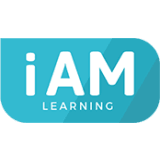This informal CPD article, ‘The Significance of Emotional Intelligence in Learning’, was provided by iAM Learning, who are transforming the way your workforce trains and retains, using high-end animation, lovable characters and captivating stories to make even the most serious subjects appealing and unforgettable.
Why is it that some people have no problems learning, while others struggle? It’s nothing to do with how smart they are - even people of above-average intelligence can have issues taking information on board.
The secret might lie in emotional intelligence, or EQ (Emotional Quotient, named to bring it in line with the more commonly known IQ). But what is EQ, and why does it matter in learning?
What is Emotional Intelligence
Emotional intelligence is the ability to recognise, understand and manage the emotions we feel, as well as those of others. It’s generally measured as an EQ score, similar to how IQ measures cognitive abilities. Unlike IQ, though, which remains relatively stable throughout your life, you can actually grow, develop and improve your EQ with relative ease.
Does having high EQ matter in learning? Yes, for sure. Imagine you’re taking some mandatory training online, and you’re struggling. Instead of letting it build and shutting down, missing out on valuable learning, you catch yourself. You take a deep breath and reframe this as an opportunity for growth, so you go and ask for help. High EQ made you notice your frustration and take action. Useful, right?
Luckily, your EQ can be improved through targeted learning and practice. Let’s look at some important skills to develop which will boost your EQ.
Self-awareness is a key component of EQ. It helps
learners recognise their strengths, weaknesses, and learning preferences. Once
you know this stuff, you can start to tailor your approach to suit your
learning preferences.
Self-regulation is another crucial EQ skill. It’s the
ability to manage your emotions and impulses. During learning, this might be focusing
during a long training session or resilience when it’s not gone to plan. When
the going gets tough, you stay motivated and plough through it.
When you’re collaborating with others, empathy, the
ability to understand and share the feelings of others, comes into play. It helps
learners work effectively together, understand different perspectives, and
provide constructive feedback to peers.
The final EQ skills you’ll need are social skills. They’re essential for networking and building relationships. If you develop them, you can tap into others’ collective knowledge and enhance everyone’s learning experience.
Let’s say you’re happy with your EQ skills. As a leader, you probably want to help others with theirs. Here are some practical ways you can weave EQ principals into your training programs.
- Be mindful: Encourage your team to take part in mindfulness exercises which can help them develop self-awareness and emotional regulation. Simple breathing exercises or guided meditations at the start of a session can make for focused, emotionally intelligent learning.
- Promote psychological safety: Create an environment where learners feel safe to take risks, ask questions, and make mistakes. Set up clear rules about how everyone should talk to each other with respect and allow the teacher to be open about their own challenges.
- Encourage your team to reflect: During training, create opportunities for learners to reflect on their emotional responses to new information or challenges. It can be in-session, during a group chat or one-to-one after a session.
- Ditch ‘happy’ and ‘sad’: Introduce and regularly use a wide range of emotional terms. Things with more nuance, like content, frustrated, apprehensive and inspired. This helps learners better identify and express their feelings, a key aspect of emotional intelligence.
- Teach active listening: Encourage exercises that develop active listening skills. This not only improves empathy but also enhances overall communication and collaboration.
- Use role-playing scenarios: Role-playing allows learners to practice their EQ skills in a safe environment, so they are ready to use them in the real world.
Use these strategies when planning your L&D to help create learning experiences that don’t just make people learn a subject – they can also develop key emotional intelligence skills.
Final thoughts
Using emotional intelligence in learning is the secret ingredient that can transform good learners into great ones, and effective teams into exceptional ones. By focusing on developing EQ alongside traditional learning objectives, we can create more resilient, adaptable, and successful learners.
Again, EQ isn’t fixed. It’s a skill like any other, and you can develop
it over time. You get better at using it the more you practice, and when you
can control your EQ, you’ll find that learning becomes easier. If you’re
someone who wants to become a better learner, developing your EQ is a key part
of your learning journey. And, if you manage an L&D team, it’s useful to
bake it into your strategy, for everyone’s sake.
We hope this article was helpful. For more information from iAM Learning, please visit their CPD Member Directory page. Alternatively, you can go to the CPD Industry Hubs for more articles, courses and events relevant to your Continuing Professional Development requirements.













